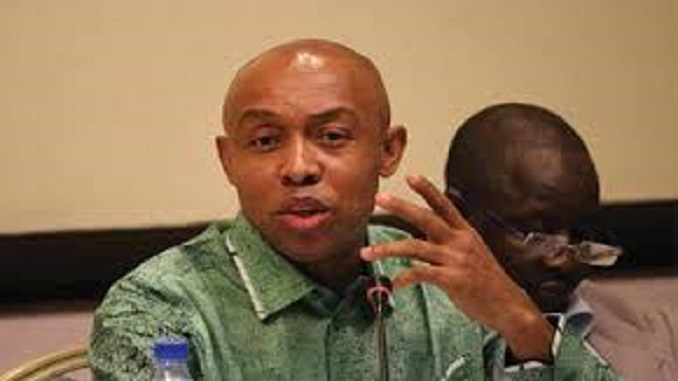‘The combination of a pandemic and emergencies is lethal to both campaigning and competitive politics.’
By Chidi Anselm Odinkalu
Confronted, in COVID-19, with a foe they cannot bribe, detain, or shoot, African governments across the continent find themselves desperately short of options.
Despite ample notice about the arrival of the coronavirus, Africa’s governments did little to prepare themselves, their systems, or their people.
Yet this public health emergency could be dwarfed by a still deeper crisis. It is a story about constitutional politics, which begins with elections, but is really about how African governments derive their legitimacy and what they do with power.
Let us begin with elections. In 2020, at least 22 countries in Africa are or will be organising polls, 13 of which will be for the positions of president or prime minister. Whether the elections take place in most of these countries will depend on how long they take to contain COVID-19. No one knows this now.
What is clear is that in response to COVID-19, at least 40 governments in Africa have implemented movement restrictions; 26 have declared states of emergency or states of disaster; and in at least 20 African countries, some of the measures implemented are of indefinite duration.
The combination of a pandemic and emergencies is lethal to both campaigning and competitive politics. In some countries, these measures threaten to run out the clock on the tenure of government with no clear means to renew or replace them. This could create a gap conducive to instability.
“The combination of a pandemic and emergencies is lethal to both campaigning and competitive politics.”
Ethiopia presents perhaps the most serious illustration of this crisis of COVID-induced constitutional instability, but by no means is it the only one.
The dissolution of the democratic centralism of the former ruling Ethiopian People’s Revolutionary Democratic Front (EPRDF) triggered a rise in ethno-nationalism, which guaranteed that Ethiopia’s general election originally scheduled for 29 August was already going to be an edgy affair.
Now, the COVID-19 crisis has frustrated preparations for the vote, disabling essential processes such as voter registration and the deployment of ballot administration. With the tenure of the government due to lapse in the first week of September and none of these likely to be accomplished, the National Election Board of Ethiopia on 31 March deferred the election indefinitely.
One week later, on 8 April, the government invoked powers under the constitution to proclaim a state of emergency, on its face designed to manage COVID-19. Ethiopia is one of the few countries in Africa in which the constitution expressly authorises government to invoke a state of emergency for “a natural disaster, or an epidemic”.
With an initial duration of five months, Ethiopia’s state of emergency will expire the week after the tenure of the administration should have lapsed. It keeps all the institutions of government working and can in principle be renewed every four months thereafter.
While the text says the emergency is to enable the government to manage a pandemic, the sub-text of this emergency is to purchase the country time to negotiate uncharted constitutional territory. Underwriting the emergency is an implicit bargain that requires all political stakeholders to behave themselves in pursuit of the common good because anything else will be dangerous for the political stability of this regional anchor in the Horn of Africa.
Ethiopia’s tenuous political consensus will be hard to replicate in Malawi, where the legitimacy of government rests on a thin judicial thread. On 3 February 2020, the country’s constitutional court, citing criminal falsifications, nullified the fractious 2019 presidential election, which returned President Peter Mutharika to office.
In doing so, it ordered a re-run of the ballot within 150 days, which the Malawi Electoral Commission has now set for 2 July. Fidelity to this date presumes that both preparations and campaigns will take place during the COVID-19 crisis. However, on 20 March, Mutharika, whom the court has allowed to linger in office in the interregnum before the re-run, proclaimed an indefinite “State of Disaster”, during which he has banned “public gatherings to less than 100 people”, including “rallies”.
This leaves the country with two options: hold the elections within time with no campaign rallies, or defer them and compound a crisis of illegitimate government. Malawi’s Supreme Court, which still has to decide on Mutharika’s appeal against the constitutional court’s judgment, may yet offer some help in resolving between these two bad options. Whatever it does, Malawi faces a tense few months.
For many of the African countries required by their constitutions to renew or replace the mandate to govern through elections in the next year, the COVID-19 crisis presents them with a choice between an irretrievably flawed ballot on the one hand and tenuous tenure elongation on the other. The result in either case could be a crisis of constitutional stability that will be bad for Africa.
“The moral of this story is that African governments facing an election over the next year have an incentive to manage the COVID-19 crisis with a serious sense of responsibility.”
The African Union has outlawed unconstitutional changes in government (they used to be known as coups), but created an imprecise exception for “popular uprisings”. The moral of this story is that African governments facing an election over the next year have an incentive to manage the COVID-19 crisis with a serious sense of responsibility.
If they fail to do so, they could end up with tenuous legitimacy or hostage to the uncertainties of the AU’s prevarications on popular uprisings.
Despite the constraints of working from home, the AU should find urgent reason to supplement its doctrine by offering sensible guidance to African governments on how to address the political instability that could be unleashed by the COVID-19 crisis.
The consequences of not doing so now could be very costly.





